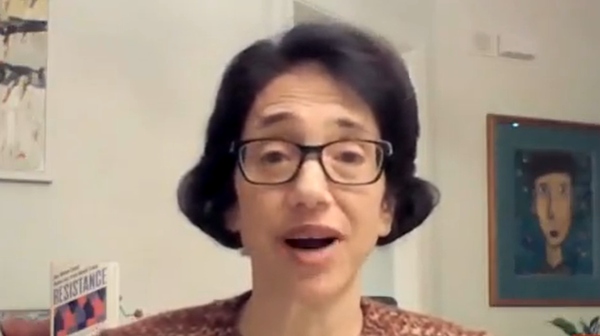Alabama joins 9 other states in supporting Florida’s “free speech law” protecting against Big Tech censorship
09/22/2021 / By Cassie B.

Alabama has just joined nine other states that are fighting against Big Tech and supporting Florida’s “free speech law.”
Under Florida SB 7072, Floridians are allowed to sue Big Tech companies if they have been unfairly censored by them. It also allows Florida’s attorney general to file suits on these grounds. Florida’s governor, Ron DeSantis, signed the bill into law back in May.
Unfortunately, a federal judge has temporarily prevented the law from being enforced on the grounds that some parts of it may violate the First Amendment after legal action was brought against the law by trade associations representing social media firms.
Now, Alabama Attorney General Steve Marshall has joined Florida as well as Arizona, Montana, Texas, South Carolina, Kentucky, Mississippi, Alaska, Arkansas and Missouri in fighting efforts by Big Tech to launch illegal opposition to the Florida law.
Marshall said: “For daring to protect her citizens’ freedom of speech, Florida is being demonized by the giants of Big Tech, which have the gall to claim that invalidating the Sunshine State’s anti-censorship law is necessary ‘to protect Florida consumers, small businesses, and free speech.’”
The court brief by the attorneys general in support of the Florida law praised it for aiming to stop “arbitrariness, censorship and editorial abuse” by tech companies when deciding to remove posts, limit users’ ability to share content and suspend users.
Marshall denounced efforts to block the law in a press release, saying that it promotes fairness through its requirement that social media companies use consistent policies when making decisions about suspensions and blocking users. According to the law, these companies need to make their standards clear and notify people whose content has been blocked or restricted.
In the announcement, he also drew attention to the joint effort between Alabama and Louisiana to launch their Social Media Censorship Complaint Form enabling members of the public to file complaints if social media platforms have censored them.
Both states have set up portals on their state office websites to collect complaints from social media users who have been suspended, have had their content blocked or have been restricted in other ways.
Conservative politicians often on the receiving end of Big Tech censorship
Last week, Governor Kay Ivey discussed how her reelection campaign “fought back and won” against Facebook after the platform temporarily removed their page. She believed they were trying to silence her after she criticized the controversial vaccine mandates that were recently issued by President Joe Biden. Ivey, who is currently running for reelection, said that although she encouraged Alabamians to get vaccinated, she would never mandate it.
She said: “If Big Tech thinks they can silence us and that I won’t fight back, then honey, they haven’t met me. They have another thing coming. I’m not backing down. I never will. We’re fighting Washington. We’ll fight Big Tech, too.”
The campaign reported receiving a message that their page had been unpublished for violating community standards. For its part, however, Facebook claims that Ivey’s campaign page was restricted for a short period of time accidentally after being incorrectly flagged as an impostor account.
Facebook also issued former President Donald Trump a two-year suspension after he called people who participated in a riot at the U.S. Capitol “great patriots.” In addition, Trump’s account was permanently suspended by Twitter, who claimed that his tweets were likely to lead to more violence. Trump filed a lawsuit against Twitter, Google and Facebook in July claiming that the platforms wrongly censored him.
Sources for this article include:
Tagged Under: Alabama, Big Tech, Censorship, Facebook, First Amendment, Florida, free speech, freedom of speech, Google, resist, revolt, Social media, Twitter, Tyranny
RECENT NEWS & ARTICLES
COPYRIGHT © 2018 SPEECHPOLICE.NEWS
All content posted on this site is protected under Free Speech. SpeechPolice.news is not responsible for content written by contributing authors. The information on this site is provided for educational and entertainment purposes only. It is not intended as a substitute for professional advice of any kind. SpeechPolice.news assumes no responsibility for the use or misuse of this material. All trademarks, registered trademarks and service marks mentioned on this site are the property of their respective owners.




















